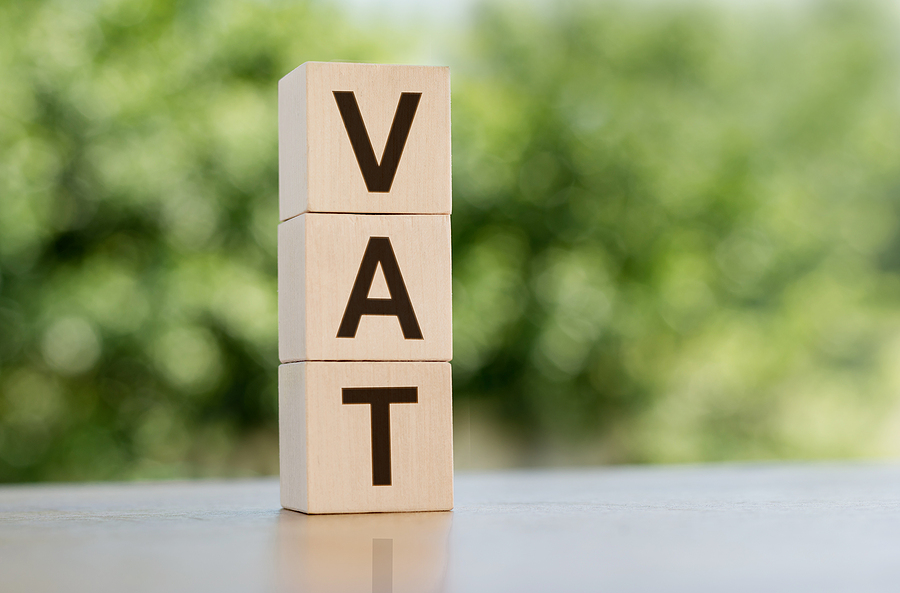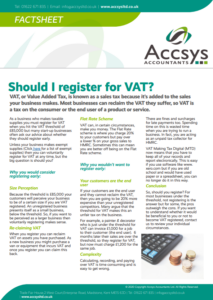Should I register for VAT?

VAT, or Value Added Tax, is known as a sales tax because it’s added to the sales your business makes. Most businesses can reclaim the VAT they suffer, so VAT is a tax on the consumer or the end user of a product or service.
As a business who makes taxable supplies you must register for VAT when you hit the VAT threshold of £85,000 but many start-up businesses often ask our advice about whether they should register early.
Unless your business makes exempt supplies (Click here for a list of exempt supplies) then you can voluntarily register for VAT at any time, but the big question is should you?
Why you would consider registering early:
Size Perception
Because the threshold is £85,000 your customers will perceive your business to be of a certain size if you are VAT registered. An unregistered business presents itself as a small business, below the threshold. So, if you want to be perceived as a larger business then voluntarily registering makes sense.
Re-claiming VAT
When you register you can reclaim VAT on assets you have purchased. As a new business you might purchase a van or equipment that incurs VAT and once you register you can claim this back.
Flat Rate Scheme
VAT can, in certain circumstances, make you money. The Flat Rate scheme is where you charge 20% to your customers but pay over a lower % on your gross sales to HMRC. Sometimes this can mean you are better off being on the Flat Rate scheme.
Why you wouldn’t want to register early:
Your customers are the end user
If your customers are the end user and they cannot reclaim the VAT, then you are going to be 20% more expensive than your unregistered competitors. Many argue that the threshold for VAT makes this an unfair tax on the business.
For example, a painter & decorator who is just under the threshold for VAT can invoice £1,000 for a job to their customer (the end user). 6 months later their sales are over the threshold, so they register for VAT, but now must charge £1,200 for the same job.
Complexity
Calculating, recording, and paying over VAT is time consuming and is easy to get wrong.
There are fines and surcharges for late payments too. Spending time on this is wasted time when you are trying to run a business. In fact, you are acting as an unpaid tax collector for HMRC.
VAT Making Tax Digital (MTD) now means that you have to keep all of your records and report electronically. This is easy if you use software like www.xero.com but if you are old school and would have used paper or a spreadsheet, you can no longer do it in this way.
Conclusion
So, should you register? For most businesses under the threshold, not registering is the answer but for some, the pros outweigh the cons. If you want to understand whether it would be beneficial to you or not to become VAT registered, contact us to review your individual circumstances.


